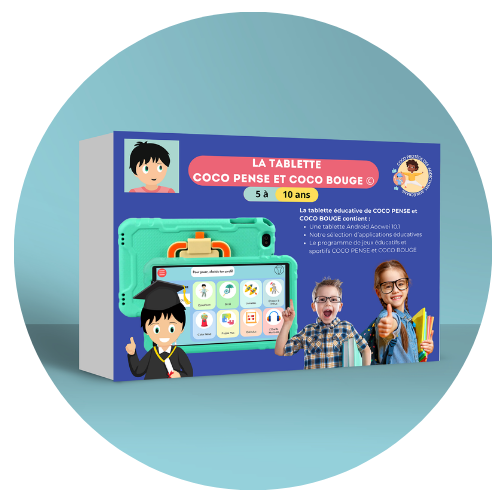Developing social skills in children with Attention Deficit Hyperactivity Disorder (ADHD) holds paramount significance in their overall well-being and future success. ADHD, characterized by impulsivity, hyperactivity, and inattention, often hinders children’s ability to navigate social interactions effectively. These difficulties can lead to social isolation, low self-esteem, and academic challenges.
Addressing social skill development is vital as it equips children with the tools necessary to form meaningful relationships, communicate effectively, and thrive in various social contexts. Moreover, enhanced social skills contribute to improved academic performance and emotional regulation in children with ADHD.
By fostering social competence, children with ADHD can experience increased acceptance among peers, reduced instances of bullying, and greater opportunities for positive social experiences. Recognizing the importance of social skill development in this population underscores the need for tailored interventions and support systems to help them overcome challenges and reach their full potential. Thus, investing in strategies to enhance social skills in children with ADHD is instrumental in fostering their holistic development and long-term success.
Understanding Social Challenges Related to ADHD
Children with ADHD often encounter a myriad of social difficulties that stem from the core symptoms of the disorder. One common challenge is impulsivity, which can manifest as interrupting others during conversations or engaging in inappropriate behaviors without considering social norms. Additionally, children with ADHD may struggle with maintaining attention during social interactions, leading to difficulties in following social cues or understanding social nuances.
Hyperactivity further complicates social situations, as it may result in difficulty staying still or waiting for turns, disrupting group activities and fostering frustration among peers. These challenges can lead to social rejection, isolation, and strained relationships, exacerbating feelings of low self-esteem and inadequacy. Understanding these common social difficulties is crucial for developing targeted interventions and support systems to help children with ADHD navigate social interactions more effectively and foster positive social relationships.
Importance of Social Skills Development
Social skills development plays a pivotal role in shaping peer relationships and fostering meaningful social interactions for children with ADHD. Effective social skills enable them to establish rapport with peers, navigate social situations confidently, and cultivate lasting friendships. By enhancing their ability to communicate effectively, interpret social cues, and regulate their behavior, children with ADHD can experience increased acceptance and inclusion among peers, reducing the likelihood of social isolation and rejection.
Moreover, proficient social skills extend beyond interpersonal relationships to impact academic and personal success. Children who excel in social interactions often exhibit improved classroom engagement, collaboration, and problem-solving skills, leading to enhanced academic performance and overall well-being. Additionally, mastering social skills equips children with the necessary tools to navigate various social contexts, fostering resilience and adaptability essential for success in diverse personal and professional environments.
Identifying Specific Social Skills to Target
In the journey of supporting children with ADHD in their social development, identifying specific social skills to target becomes paramount. Each child may have unique areas of strength and challenge, necessitating a tailored approach to address their needs effectively. By pinpointing specific social skills, caregivers and educators can develop targeted interventions and strategies to help children with ADHD navigate social interactions with confidence and proficiency.
Active listening and conversation skills
Active listening and conversation skills are essential components of effective communication for children with ADHD. Teaching children how to actively listen, maintain eye contact, and respond appropriately during conversations fosters meaningful connections with others. Through practice and reinforcement, children learn to engage attentively, take turns speaking, and demonstrate respect for others’ viewpoints. Developing these skills enhances their ability to participate in conversations, share ideas, and build positive relationships with peers and adults alike.
Empathy and perspective-taking
Empathy and perspective-taking are fundamental social skills that promote understanding, compassion, and interpersonal harmony. Children with ADHD benefit from learning how to recognize and empathize with the feelings and perspectives of others. By encouraging perspective-taking exercises, role-playing scenarios, and discussing diverse viewpoints, children develop a deeper appreciation for empathy and its role in fostering meaningful relationships. Cultivating empathy helps children with ADHD navigate social interactions with sensitivity and understanding, contributing to the creation of inclusive and supportive social environments.
Conflict resolution and problem-solving
Conflict resolution and problem-solving skills empower children with ADHD to navigate interpersonal conflicts and challenges effectively. Teaching children constructive ways to manage disagreements, negotiate solutions, and compromise promotes positive conflict resolution. Through role-playing, collaborative problem-solving activities, and guided discussions, children learn strategies for resolving conflicts peacefully and assertively. By equipping children with these skills, caregivers, and educators empower them to address conflicts proactively, build resilience, and foster healthy relationships based on mutual respect and cooperation.
Creating Structured Social Opportunities
Creating structured social opportunities is essential for supporting the social development of children with ADHD. Organizing group activities and playdates provides a structured platform for children to practice social skills in a supportive environment. These activities offer opportunities for children to learn cooperation, turn-taking, and problem-solving while engaging in shared interests and recreational pursuits.
Additionally, facilitating structured social skill-building sessions allows children to learn and practice specific social skills, such as active listening, empathy, and conflict resolution, in a guided setting. These sessions often incorporate role-playing, modeling, and feedback to reinforce positive behaviors and address areas of difficulty. By providing structured social opportunities, caregivers and educators empower children with ADHD to develop and refine their social skills, promoting confidence, self-esteem, and successful social interactions in various contexts.
Teaching Social Skills Explicitly
Teaching social skills explicitly involves breaking down complex social behaviors into manageable steps and providing clear explanations and demonstrations for children with ADHD. By deconstructing social interactions into smaller, more digestible components, educators and caregivers can help children understand the specific behaviors and actions involved in different social situations.
This approach enables children to grasp the underlying principles of social interactions and learn how to apply them in real-life contexts effectively. Additionally, providing clear explanations and demonstrations offers children concrete examples and visual cues to help them comprehend and internalize social norms and expectations. Through explicit instruction and modeling, children with ADHD can develop a deeper understanding of social dynamics, enhance their social cognition, and acquire the necessary skills to navigate social interactions confidently and successfully.
Encouraging Positive Social Interactions
Encouraging positive social interactions among children with ADHD is pivotal for their development and integration into social settings. To foster these interactions effectively, several strategies can be employed, organized into two main categories: Reinforcement of Desired Behaviors and Modeling of Appropriate Social Behaviors. Here’s an expanded version with concrete examples for clarity:
Reinforcement of Desired Behaviors
This strategy involves acknowledging and rewarding positive social actions to encourage their repetition. Examples include:
- Praise for Sharing: When a child shares their toys or materials with a peer, adults should offer immediate verbal praise. For instance, saying, “Great job sharing your toys with your friend! That was very kind of you.”
- Rewards for Taking Turns: Implement a system where taking turns during games or conversations earns the child a sticker or a point towards a small reward. This tangible reinforcement highlights the value of patience and fairness in interactions.
- Acknowledgment for Showing Empathy: Recognize and praise instances where the child expresses understanding or concern for others’ feelings. An example could be, “I saw how you asked Jenny if she was okay when she was sad. That was very thoughtful and kind.”
Modeling of Appropriate Social Behaviors
Children often imitate the behaviors of adults around them, making it crucial for caregivers to exhibit the social skills they wish to instill. Examples include:
- Respectful Communication: Demonstrate how to express oneself respectfully, even in disagreement. Use phrases like “I understand your point, but I feel differently,” to show how to maintain civility in conversations.
- Active Listening: Show the child how to listen attentively by making eye contact, nodding, and repeating back what was said to ensure understanding. Practice this in your interactions with them and others to illustrate its importance.
- Problem-Solving Strategies: In situations of conflict or misunderstanding, openly discuss and apply problem-solving techniques. For example, if two children want the same toy, guide them through a process of coming up with a fair solution, like taking turns or finding another toy to play with together.
By consistently applying these strategies, children with ADHD can learn and internalize valuable social skills. The combined approach of positive reinforcement for pro-social behaviors and modeling by adults lays a foundational framework for children to engage in positive social interactions, understand the perspective of others, and navigate social environments more successfully. This not only benefits their immediate social experiences but also contributes to their long-term social development and well-being.
Addressing Challenges and Setbacks
Collaboration with School and Community Resources
Collaboration with school and community resources is vital for comprehensive social skills development in children with ADHD. Involving teachers and counselors in social skills development ensures a consistent approach across home, school, and other environments. Teachers can incorporate social skills training into the curriculum, provide targeted interventions, and offer support during social interactions in the classroom and on the playground. School counselors play a crucial role in identifying social-emotional needs, conducting group counseling sessions, and providing individualized support to children with ADHD. Additionally, utilizing community programs and support groups can offer valuable resources and opportunities for children to practice social skills in diverse settings.
Community programs may include extracurricular activities, sports teams, and youth groups, providing children with ADHD with a supportive network and opportunities for social engagement outside of school. By fostering collaboration between schools, communities, and families, children with ADHD can access a range of resources and support systems to enhance their social skills and overall well-being.
Promoting Self-Awareness and Self-Advocacy
Promoting self-awareness and self-advocacy in children with ADHD involves helping them understand their strengths and challenges while encouraging self-expression and assertiveness. By guiding children to identify their unique strengths, interests, and areas for growth, caregivers and educators empower them to develop a deeper understanding of themselves and their capabilities. This self-awareness fosters confidence and resilience, enabling children to navigate challenges with greater efficacy. Furthermore, encouraging self-expression and assertiveness provides children with ADHD with the tools to communicate their needs, preferences, and boundaries effectively.
Through open dialogue and supportive encouragement, children learn to advocate for themselves in various social and academic settings, assert their rights, and seek necessary accommodations or support when needed. By promoting self-awareness and self-advocacy, children with ADHD can cultivate a strong sense of identity, agency, and empowerment as they navigate the complexities of daily life.
Incorporating Social Skills Training into Daily Life
Incorporating social skills training into daily life for children with ADHD involves integrating social skill practice into daily routines and activities while providing opportunities for real-world application and practice. By embedding social skill development into everyday experiences such as mealtime conversations, group activities, and outings, children have consistent opportunities to practice and reinforce social behaviors in familiar contexts.
Additionally, providing opportunities for real-world application allows children to apply learned social skills in authentic settings, such as playgrounds, community events, or social gatherings. These experiences offer valuable opportunities for children to navigate social interactions, problem-solving, and conflict resolution in real time, fostering confidence and competence in social situations. By weaving social skills training into the fabric of daily life, caregivers and educators create a supportive environment where children with ADHD can develop and refine their social abilities in meaningful and practical ways.
The significance of social skills development for children with ADHD cannot be overstated. Enhancing social competence not only fosters meaningful relationships and positive peer interactions but also contributes to academic success and emotional well-being. By addressing common social challenges, providing structured opportunities for skill-building, and promoting self-awareness and advocacy, children with ADHD can develop essential social skills necessary for navigating various social contexts effectively.
Caregivers, educators, and communities must continue offering ongoing support and encouragement in this area. By fostering a collaborative and supportive environment that values the unique strengths and needs of children with ADHD, we can empower them to thrive socially, academically, and emotionally, laying the foundation for a brighter and more inclusive future.
Other articles that might interest you:
Recognizing ADHD in Children: Signs to Look For
Attention Deficit Hyperactivity Disorder (ADHD) is a neurodevelopmental disorder that affects a significant number of...
Managing ADHD and Anxiety: Tips for Finding Balance
Attention Deficit Hyperactivity Disorder (ADHD) and anxiety are two distinct yet often overlapping conditions that can...
Managing Combined ADHD: Strategies for Success
Attention Deficit Hyperactivity Disorder (ADHD) is a neurodevelopmental disorder that manifests in various forms, with...






